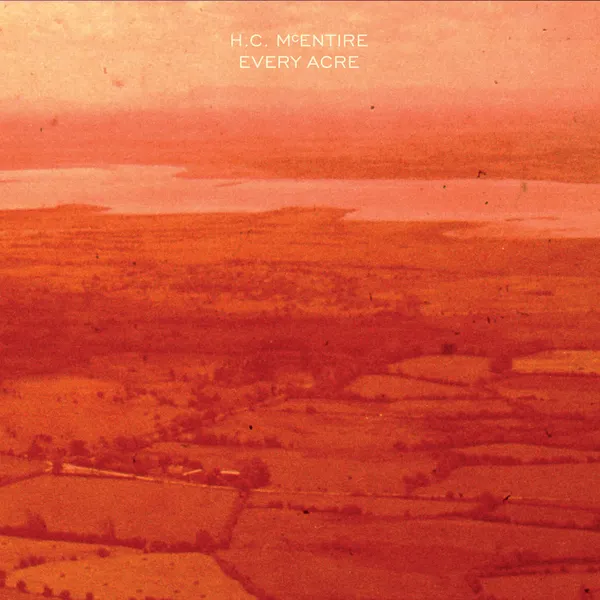June’s Add of the Month: “Every Acre” by H.C. McEntire
 Every Acre” by H.C. McEntire
Every Acre” by H.C. McEntire
words by Marion Suchowiecky (Ext. Music Director 22-24′)
H.C. McEntire’s latest project, “Every Acre,” takes listeners on a captivating and personal journey across the expansive fields of North Carolina, and their connection to the artist’s memory. With her powerful vocals, evocative songwriting, and a soundscape that combines elements of country, rock, and folk, McEntire creates an album that feels both intimate and boundless. In this newest work, she brings new life to the genre of country music by both incorporating her queer identity into its lyrics, as well as taking an innovative approach to the instrumentation showcased in her tunes.
“Every Acre” marks a significant evolution in H.C. McEntire’s sound. Known for her work with the indie rock band Mount Moriah, McEntire takes a step further into the realm of Americana on this album. The shape of the album is familiar, reminiscent of Niel Young’s “Harvest Moon,” yet the themes of the songs lean towards an exploration of love and romantic relationships. The opening track, “Hands for the Harvest,” sets the tone with its gentle acoustic guitar and McEntire’s tender yet commanding vocals. The maturity in her songwriting is evident as she delves into themes of love, loss, and self-discovery. This is a song about diving head first into a relationship and allowing oneself to become completely comfortable with the person they love.
In the second song of the album, “Shadows,” McEntire seems to be recounting the acceptance of her queer identity as a North Caroline native. She alternates between talking about herself and another person, recounting intimate moments between the pair. The moments recounted in the lyrics are inextricably intertwined with the imagery of objects- she employs metaphors of a quilt, an attic, and a broom. This is a motif throughout the album which is supplemented by the inclusion of atmospheric sounds like the noise of frogs which one can hear at the end of the tune. The instrumentation of “Shadows” also makes one feel as though they are surrounded in an echoey room. The drums simulate the sound of a heartbeat, the full bass sound takes center stage, and the vocals & guitar are drenched in reverb. It is as if McEntire is creating links between her intangible memories, and the tangible objects and places that formed part of her upbnringing.
Emotions run deep throughout “Every Acre,” drawing the listener into McEntire’s world. Tracks like “Wild Dogs” and “Swansong” showcase her ability to express vulnerability with unflinching honesty. McEntire’s lyrics resonate on a personal level, revealing a rawness that can be felt in every word. The haunting ballad, “Houses of the Holy,” is a standout track that encapsulates the album’s emotional depth, with its stripped-down instrumentation allowing McEntire’s voice to take center stage. In “Turpentine” McEntire challenges the ear of the listener by guiding them through a familiar melody and then turning the melody on its head from the first verse. In this song, it is as if McEntire lays out all of her memories on a shelf, examines them, and then has the strength to walk away.
McEntire’s collaboration with producer John Parish, known for his work with PJ Harvey, lends a rich and atmospheric quality to the album. The arrangements are carefully crafted, allowing each instrument to breathe while creating a sense of vastness. The combination of pedal steel, fiddle, and organ on tracks like “Time, On Fire” and “One Great Thunder” adds layers of texture, further immersing the listener in McEntire’s musical landscape. Most of the songs showcase a simple instrumentation- one can hear a soft nuance in the percussion, and a sense of parsimony in the guitar tracks- giving plenty of room for the listener to interpret the sparse moments of instrumental intensity.
At its core, “Every Acre” is a celebration of identity and connection to the natural world. McEntire, who identifies as queer and hails from rural North Carolina, weaves these elements into her songwriting seamlessly. The album captures the juxtaposition of the expansive countryside and personal introspection, exemplified in tracks like “Footman’s Coat” and “Pony.” McEntire fearlessly confronts her own personal truths, inviting listeners into her world with open arms. While “Every Acre” explores deep emotions and introspection, it also offers moments of upliftment and resilience. The track “River’s Jaw” stands out as an empowering anthem, with its driving rhythm and empowering lyrics that speak to the strength found in overcoming obstacles. McEntire’s voice soars with a sense of determination, encouraging listeners to find their own inner resolve.
McEntire’s new work is full of subtleties, but does not lack in boldness. McEntire takes a bold approach to a genre of music which has become distorted in popular culture with oppressive political ideals. McEntire taps into the tradition of artists like Townes Van Zandt, and Lee Hazelwood, or even songwriters like Robert Hunter. She challenges the conventions of the country genre and flips them on their head. This very act of defiance might be exactly what the genre needs in the modern day in order to be brought out of its stale state. The record is also a testament to McEntire’s personal fortitude, she throws herself headfirst into the difficult task of examining one’s life through the lens of the subconscious connections between memory and environment. Listening to this album was a wholly healing experience, providing the listener with the hope that healing is possible.
